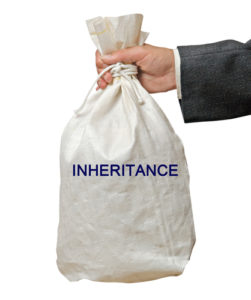 At TSI Network, we recommend that if you are looking at investing in gold that you stay away from buying gold bullion, coins (unless you collect them as a hobby) or certificates representing an interest in bullion.
At TSI Network, we recommend that if you are looking at investing in gold that you stay away from buying gold bullion, coins (unless you collect them as a hobby) or certificates representing an interest in bullion.
That’s because gold investing in bullion does not generate income. Instead, bullion and coins come with a continuing cash drain for management, insurance, storage and so on.
Instead, that’s why we recommend that you limit your gold investing to gold-mining stocks. Unlike bullion, gold-mining stocks at least have the potential to generate income.
However, if you do want to hold physical gold or silver in an RRSP, here’s how to do it:
More than a decade ago, the 2005 Canadian federal budget made investment-grade gold and silver coins, as well as gold or silver bullion bars, eligible to be held in an RRSP.
To be considered investment grade, gold coins must be at least 99.5% pure, and silver coins must be at least 99.9% pure. As well, only legal-tender coins produced by the Royal Canadian Mint are RRSP-eligible.
Bullion bars are also eligible for RRSP gold investing, as long as they are produced by a metal refinery that is accredited by the London Bullion Market Association. Accredited metal refineries include the Royal Canadian Mint and Johnson Matthey.
However, to hold the coins or bullion bars in your RRSP you need to find a third-party custodian of your coins or bars who will verify that you indeed hold the amount of bullion claimed, and report that to the Canada Revenue Agency on your behalf.
Investing in gold: a practical way to hold gold bars and coins in your RRSP
Continue Reading…
 For many investors, setting aside inheritance money for their heirs and loved ones is a natural part of retirement planning. But doing this successfully is not easy, and fortunes rarely last for long. In fact, long-term studies show that six out of 10 family fortunes get dissipated by the end of a second generation. And nine out of 10 are gone by the end of the third generation.
For many investors, setting aside inheritance money for their heirs and loved ones is a natural part of retirement planning. But doing this successfully is not easy, and fortunes rarely last for long. In fact, long-term studies show that six out of 10 family fortunes get dissipated by the end of a second generation. And nine out of 10 are gone by the end of the third generation. For many investors, setting aside inheritance money for their heirs and loved ones is a natural part of retirement planning. But doing this successfully is not easy, and fortunes rarely last for long. In fact, long-term studies show that six out of 10 family fortunes get dissipated by the end of a second generation. And nine out of 10 are gone by the end of the third generation.
For many investors, setting aside inheritance money for their heirs and loved ones is a natural part of retirement planning. But doing this successfully is not easy, and fortunes rarely last for long. In fact, long-term studies show that six out of 10 family fortunes get dissipated by the end of a second generation. And nine out of 10 are gone by the end of the third generation.




